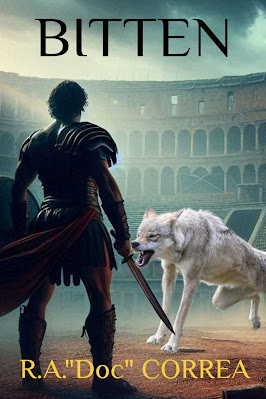A grieving woman meets a mysterious stranger
On a day unlike any other day, Rose walked into the airport.
Her sneakers made minimal sound as she pulled her only suitcase behind her on
its almost soundless wheels. Rose glanced up, her face wooden, looking for the
correct terminal number.
Her face was expressionless as she walked through the metal
detector arch without glancing at the man who waved her through.
Rose walked toward the last barrier, her passport clutched
in her hand.
“Destination?”
“Mexico,” Rose answered, “for the festival.”
“Los dia Mortes?”
“Yes,” Rose tonelessly affirmed.
“Where are you staying, and for how long?”
Rose mentioned the resort, adding, “Ten days.”
The woman gave a double-take and returned Rose her ticket
and passport without further conversation. She only motioned her through the
gate and pointed to the small lounge where several people sat quietly, with
their carry-ons waiting to board.
Rose chose to stand at the window, where she numbly watched
as the airplane taxied into place and the bridge was driven toward the plane
door and readied.
Rose gave a polite, distant nod to the flight attendant who
helped her find her seat during boarding, then stared through the plane’s
window, ignoring the woman beside her; she hadn’t expected it. The aircraft had
few passengers, and Rose had looked forward to not having to climb over someone
to get to the aisle, let alone fend off a conversation.
“Is this your first time in Mexico?”
Rose bit her lip in annoyance, answering curtly, “Yes.”
“Ah, not for me,” the woman gave a laugh, “I go away, I come
back.”
Rose gave a noncommittal grunt.
A flight attendant stopped, offering a pre-flight beverage,
but Rose shook her head, only to have the woman scold her, “You go without too
much, I think. You must have juice for a toast if you will not have something
stronger.”
Rose looked at the woman’s determined face and shrugged at
the attendant, who nodded in affirmation before leaving to take other orders.
“Better, but not by much, eh?”
Rose looked at the woman again, who gave a broad smile on a
face creased with deep lines—an older woman wearing a dark, shapeless dress and
wrapped in a shawl. On her lap, she held a large purse, into which she reached,
searching, smacked her lips with satisfaction, and offered Rose a granola bar.
“Eat,” she urged the reluctant Rose, “you are thin, yes? Too
much. And not by wanting to be thin, I think? Yes?”
The woman pushed the bar into Rose’s hand and took it
without further argument. And, when her juice arrived, Rose took it because it
didn’t matter; it just didn’t matter anymore.
“A toast, yes?”
Rose shrugged.
“To those we love and all who have loved us, we drink this
in memory.”
Rose ignored the toast and the safety demonstration and put
on her seatbelt when the indicator lights came on. The plane taxied into
position, and she closed her eyes as she felt it accelerate beneath her,
feeling herself pushed back into the seat as the aircraft angled up toward the
clouds.
“Do not fear, no, not at all,” the woman said.
“I am not afraid,” Rose retorted grimly, then added as a
polite afterthought, “but thank you.”
“It is okay to be afraid,” the woman said, “sometimes.”
Rose did not reply and continued looking out of the window
as the woman beside her began to hum to herself.
“Fear is good, eh? Sometimes, eh? It is a good teacher,” the
woman chuckled.
Rose gave the woman a sidelong look but didn’t respond.
The woman patted Rose’s hand. “Grief, and her sister,
Mourning. They accept offerings of tears as their due, but they do not demand
them forever.”
“What are you talking about,” Rose demanded. “You are
talking foolishness.”
“Am I? Maybe, maybe,” the woman cackled. “But even so, it is
true.”
Rose grunted in annoyance, glaring at the woman who only
smiled at her with sympathy before adding softly, “Depression is a woman; she
is a demon, that one; her hair hangs like a greasy shroud, covering eyes as
black as the blackest night.”
Rose’s eyes widened in alarm as the woman took her hand
firmly, in her own, and attempted to free herself to no avail.
“Yes, her hair, hanging like a shroud,” the woman repeated,”
and her arms are thin, and her hands, they grab you, eh? They pull you close to
her breast, which hides a heart that does not beat.”
“Who are you?” Rose whispered, “I will scream. I will.”
“She presses her cold lips to yours,” the woman continued
earnestly, “until your breath is gone, and your soul cries, but it is trapped
in a frozen shell.”
Continue reading the story in the anthology:
https://books2read.com/u/mq5qNO





















